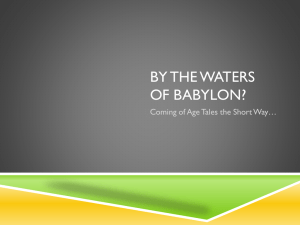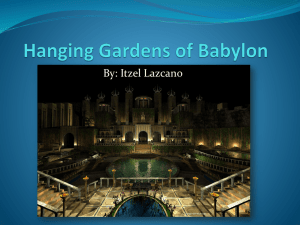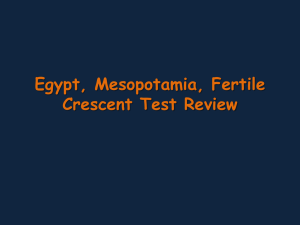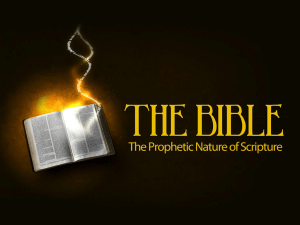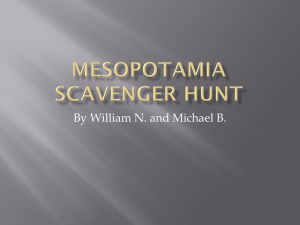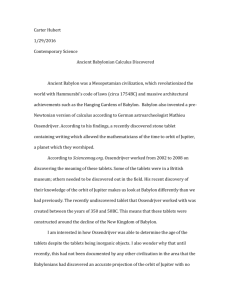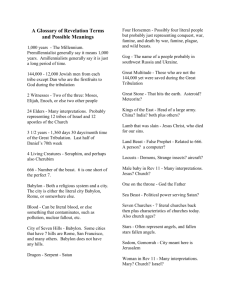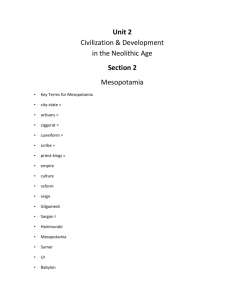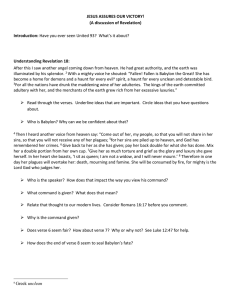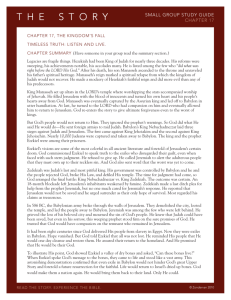Babylon: Religious Past
advertisement
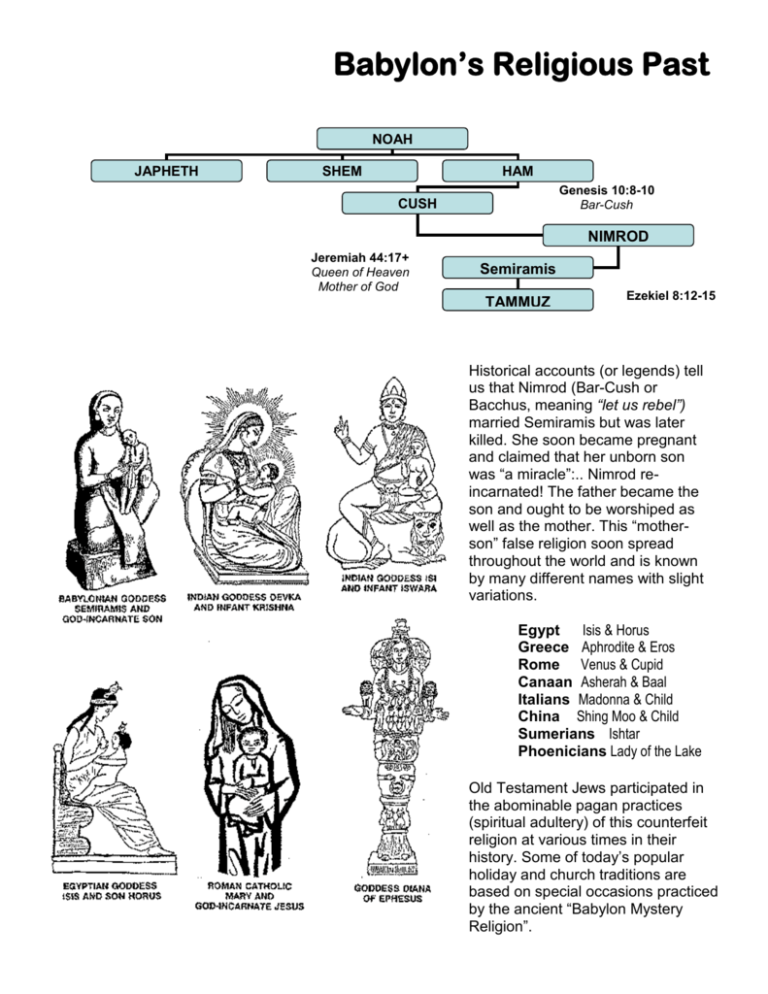
Babylon’s Religious Past NOAH JAPHETH SHEM HAM Genesis 10:8-10 Bar-Cush CUSH NIMROD Jeremiah 44:17+ Queen of Heaven Mother of God Semiramis TAMMUZ Ezekiel 8:12-15 Historical accounts (or legends) tell us that Nimrod (Bar-Cush or Bacchus, meaning “let us rebel”) married Semiramis but was later killed. She soon became pregnant and claimed that her unborn son was “a miracle”:.. Nimrod reincarnated! The father became the son and ought to be worshiped as well as the mother. This “motherson” false religion soon spread throughout the world and is known by many different names with slight variations. Egypt Isis & Horus Greece Aphrodite & Eros Rome Venus & Cupid Canaan Asherah & Baal Italians Madonna & Child China Shing Moo & Child Sumerians Ishtar Phoenicians Lady of the Lake Old Testament Jews participated in the abominable pagan practices (spiritual adultery) of this counterfeit religion at various times in their history. Some of today’s popular holiday and church traditions are based on special occasions practiced by the ancient “Babylon Mystery Religion”. Today some of these Babylonian religious “roots” have found their way into many Christian denominations and traditions Lent “Weeping for Tammuz” (fasting, also practiced by Jewish women in God’s Temple) lasted for 40 days preceding the pagan spring equinox festival. The women grieved over his death in hopes that he would come back to life, representing a renewal of nature. Little cakes were baked for the Queen of Heaven. God calls this an abomination. Jeremiah 7:18, 44:17+; Ezekiel 8:12-15 Christmas Tree In remembrance of Tammuz’ death in the winter, families burned a Yule Log (Tammuz’s death) which was miraculously replaced by a decorated living evergreen tree in honor of his resurrection which occurred 3 days later. (possibly, Jeremiah 10:2-4) Sunrise Service Jewish men gathered at the Temple, prostrating themselves with their backs to the Temple and facing East toward the sun. Ezekiel 8:16 Easter Eggs Semiramis, also known as Ishtar (“Easter”)-the goddess of fertility, was symbolized by the rabbit. In the spring, she discovered a golden egg, known as the golden egg of Astarte. Others imitated this by gathering eggs and coloring them. The High Priest of this Babylon Mystery Religion was called pontifus maximus. (“keeper of the keys”). He was robed in scarlet, wore tall hats, remained “celibate” (except for open immorality), and sprinkled holy water on the people who came to worship. After the Babylonians were conquered by the Medo-Persian empire, the priesthood moved from Babylon to Pergammum (in Turkey). Later, when the Romans became the world rulers, the priesthood moved to new headquarters in Rome. Revelation 2: 12-17 When Constantine became the Roman ruler in AD 312, he saw a vision of a cross with a voice saying, “In this sign you shall conquer.” He named Christianity the official state religion and the persecution of the Church stopped. The priests of the Babylon Mystery Religion were reassured that they could keep their traditions as the state merged the previous religious system with Christianity. The various gods, goddesses, and practices of the Babylon Mystery Religion were renamed with Christian-sounding names. As a result, the church inherited many unbelieving pagan priests. Revelation 17-18 reveals that just before Christ returns to earth to rule and reign that “Babylon: Mother of Harlots” will meet her final end. She is the embodiment of this false religion, drunk with the blood of the saints, having committed “adultery” with the kings of the earth. Moreover, they [God’s holy priests] shall teach My people the difference between the holy and the profane, and cause them to discern between the unclean and the clean. Ezekiel 44:23 Compiled from Two Babylons by Rev. Alexander Hislop Babylon: Then & Now by Sir Robert Anderson (early head of Scotland Yard) Babylon Mystery Religion by Ralph Woodrow Woman Rides the Beast by Dave Hunt.
